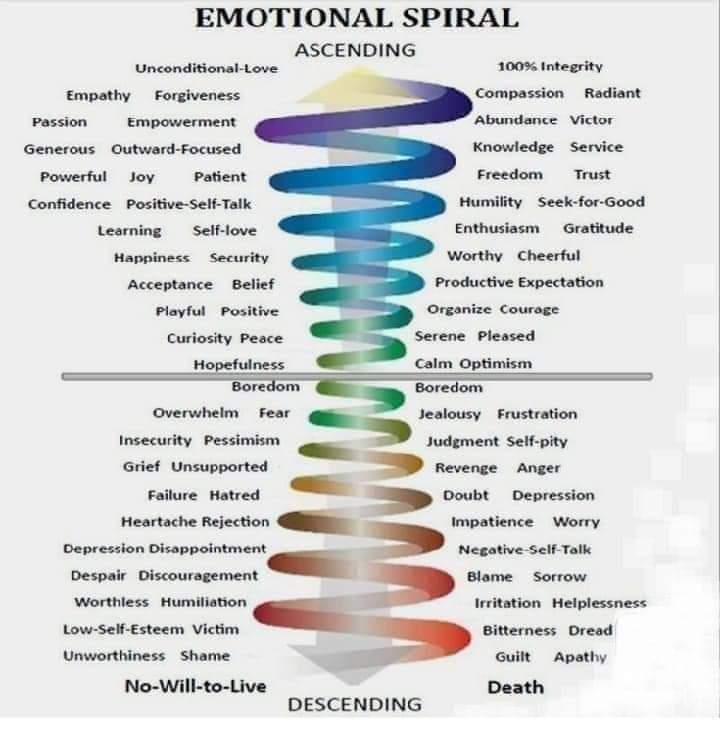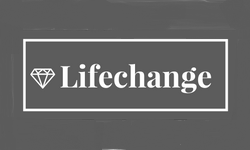Introduction
Financial independence is one of the most critical yet most challenging milestones for women recovering from domestic abuse or gender-based violence. Beyond the physical and emotional scars, survivors often face long-lasting economic consequences that impact their ability to rebuild and reclaim their lives. For many women, financial abuse is the silent partner of physical and emotional abuse—a tool of control that leaves them financially disempowered and trapped in cycles of dependence and insecurity.
As a survivor of post-separation abuse and false allegations, I know this story all too well. After being betrayed and abandoned by a long-term partner in what was meant to be our shared retirement home in Spain, I found myself navigating a legal system that did not protect me and trying to stay financially afloat amid immense trauma.
“According to UN Women, nearly 1 in 3 women worldwide have been subjected to physical and/or sexual violence by an intimate partner in their lifetime.”
Understanding Financial Abuse and Its Legacy
The definition of financial abuse: control over bank accounts, access to work, or manipulation of joint assets. I know of many cases where the home, the utilities and vehicles were registered in one name only. This leaves women more vulnerable and “precarious” in situations of domestic violence/abuse and also in cases where the relationship breaks down due to “discarding”, the abrupt termination of a relationship. Or when there is a breakdown of trust due to infidelity of the spouse or partner.
What is financial abuse?
NNEDV (National Network to End Domestic Violence) defines financial abuse as a common tactic where abusers control victims’ access to money, making it difficult to leave.
QUOTE
Financial abuse – along with emotional, physical, and sexual abuse – includes behaviors to intentionally manipulate, intimidate, and threaten the victim in order to entrap that person in the relationship.
What is financial abuse?
Let’s look at how The Law Society defines financial abuse.
Having money or other property stolen, being defrauded, being put under pressure in relation to money or other property; and having money or other property misused.
Let me give a few personal insights. In one relationship, I had a good credit record, I was working full time and I had a mortgage in my name. A partner was living with me at this time, long before financial and economic abuse was recognised. There were a few occasions when the person I was in a relationship with asked for help with money. He never had money to start a new work contract or travel to a job location. This was like a cycle of money being borrowed and repaid over and over again. Another element was his poor credit record and on a couple of occasions he set up to take out “revolving credit loans” with dubious loan companies who charged very high interest rates, only he did not sign for these loans, I signed them in his presence in front of the Company rep in my own home. Looking back, maybe this was “coercion” or acting under duress, or “people pleasing” whichever way you look at it, it happened. I know of women who have financed boats, vehicles, motorcycles for their husbands or partners, and they are left with the debts when the person leaves the relationship.
In my last relationship, I can recognise “coercion” techniques and emotional and psychological abuse. Even though we were not legally married, I lived as a committed partner in a shared home. When he pulled out of his generous financial offer, everything crumbled. I had no legal ownership, no savings in my name, and no secure income. He knew what he was doing. He declared instantly that I could not negotiate with him. I didn’t understand why he was now saying this “continues to be my house” when from the start he promised it was “our first home together”. Then in a mediation attempt paid for by me, the first offer he made to the mediator after the original promises of €115,000 or 50% of the value of the home was £13,000. He had already copied in our solicitor to his threats of “eviction” under the Spanish laws of “precarious” within weeks of him leaving Spain. Even so I was not about to accept his offer of £13,000.
The Systemic Barriers to Financial Stability
Bureaucratic and legal limitations (especially for women who were not married or who relocated abroad). Cross border litigations are not easy to navigate. The first hurdle is the language barriers when I was trying to report my complaint to Guardia in Spain. The second issue I encountered was the limited knowledge of solicitors in the “criminal” offence of “Coercive Controlling Behaviours” in the UK. The third element was my own inability to advocate for myself about the level of abuse I had experienced, plus not wanting to report the incidents to Police in the first place.
Courts can dismiss cases or fail to recognize financial coercion and post-separation control. Twice I have been provided legal advice to report crimes of gender based violence. The first time was reporting “emotional and psychological abuse” that was heard in the Women’s court as “one minor verbal abuse”. The second time I was instructed to report the crime of coercion after the former partner terminated utilities at the home I was still occupying.
Reflection: “The court in Cartagena dismissed the first case. I was blamed for my partner’s anger. I felt not only abandoned by him but betrayed by the justice system that should have protected me.” The second case was also dismissed. The Judge used victim-blaming language.
Quote: “her testimony alone cannot be considered the sole means of investigation to support the evidence of criminality, when there is an evident spurious intent on the part of the complainant.”
VIOLENCIA SOBRE LA MUJER N.1 CARTAGENA
Post-Trauma: Emotional Impacts on Earning and Stability
Post-traumatic stress, anxiety, insomnia and the impact on the survivors emotional wellbeing all interfere with stable employment or entrepreneurship. Many survivors I have spoken with have encountered the stages of “grief” and have pointed out their position on the emotional energy spiral as being “bottom left” that is “no will to live” this is where survivors find themselves after and during domestic abuse that involves economic and financial abuse which is made worse by the institutions that fails to protect or listen to the concerns of survivors who are being attacked by their abusers who weaponise money and the justice system.

Where are you on this Emotional Energy Spiral? Notice where “learning” is located next to “self love”. My next phase of my plan is to offer a “learning” platform with a low monthly recurring fee. Just $10, €10 or £10 per month to share my knowledge and teach some of what I have been learning in the last few years.
If you are an Online Educator, a Coach, an Affiliate Marketer, or a Digital Creator, then you might be interested in starting your own monthly recurring membership using a ready-to-go platform.
Let me tell you about Skool. Everything you need to build community and make money online.
Research from Women’s Aid, Economics od Abuse Report 2019.
“…many women faced financial hardship and homelessness after leaving the relationship.”
“One-third of women had to give up their home as a result of leaving their abusive partner.”
Survivors need support if they are going to overcome the huge challenges they face in regaining control of their lives, recovering from trauma, and regaining a financially stable, safe, and secure future.
The Allstate Foundation’s Purple Purse program is a U.S.-based philanthropic effort to empower survivors of domestic abuse through financial literacy and economic empowerment. Recognising that financial abuse is present in 99% of domestic violence cases, the program provides resources to help survivors achieve financial independence.
The Purple Purse program indicates that trauma is a key barrier to regaining financial independence.
My experience: “Even after publishing my first book to raise awareness, I couldn’t maintain a stable income. The court threats of eviction left me frozen. The trauma was too heavy to push through alone. I had exhausted my savings at this point, and without the help of a couple of friends, I have no idea how I would have survived. I decided to sell nearly all the furniture in the property to return to the UK. I didn’t get nearly enough cash. When you are vulnerable and desperate, vultures are waiting to prey on your misfortune.”
Social Isolation and the Erosion of Confidence
Community judgment, stigma, and being ostracised can prevent women from seeking help or networking. Women often discover that those they thought of as neighbours and friends turn against them when their situation has become vulnerable, when the individual is amid trauma or grief and is exposed to financial instability.
Lack of a strong support system exacerbates the financial fallout. Social isolation can be a significant aspect of financial and economic abuse; it falls under the “coercive controlling behaviours” of an abusive spouse or partner. Relocating away from family, moving to another country, and abusers who never fully commit to the relationship will control the finances and provide credit cards or an allowance to the “non-working” housewife/partner. The unsuspecting unmarried housewife has no idea how vulnerable she is, likely trusts the person to do the right thing. In these situations, I know that protections are put in place by speaking with other women in similar situations, who knew that their partner had named them in his will if the worst would happen. But nothing was ever laid out in legal contracts if the relationship would end by separation or infidelity or worse, domestic abuse. Women might believe that in the case of domestic abuse they would have some protections but from my experience and research this is not the case.
My personal insight: “Being falsely accused by the former partner made me a pariah in some circles. I was anxious, scared, and isolated. There were times when I experienced full blown anxiety panic attack, increased heart rate, hyperventilation, and screaming out loud. The threat of being sent to prison in Spain hanging over me for two years. Who would hire me or support my business ideas when I was being dragged through the criminal courts?”
Breaking the Cycle – The Role of Support and Empowerment
The importance of trauma-informed coaching, mentorship, and programs that support women to become financially independent. While I have been subjected to the legal intimidation and litigation abuses post separation, I have also tried very hard to overcome the massive challenges I faced. I discovered that the professional support available in the UK was not accessible from Spain. The organisations were mostly only available to women in England and Wales. There was one organisation that allowed me to become an expert by experience and that organisation is Surviving Economic Abuse that I am still in touch with.
In Spain they have a National helpline which is 016 – in my most desperate of times I called the helpline for advice. Locally in Spain I was signposted to the organisation known as CAVI.
Here are the links to the UK’s Surviving Economic Abuse, and CAVI Cartagena.
In January 2024 while under the threat of eviction when the court set the date of March 21st, I took part in a Trauma Informed Coaching Training and Certification. I also joined a program to learn how to create a business plan, a pitch deck, and do the research needed to create a full financial projection in order to find, fund and transform an unserviced land parcel in Southern Spain. Right now I’m in a community to gain full coaching Certification, if you are someone who wants to know more about that type of opportunity reach out to me on Social Platforms HERE and we can share ideas.
Part of my mission:
Part of my plans to start over with a new business venture involves the creation of a nonprofit under the banner of LifeChangePlans, the website I created in 2020 while I was in my deepest trauma, grief, fear and uncertainty. You can find out more about that here at the DonorBox Campaign.
Because I discovered to my shock that the professional institutions did not understand emotional and psychological abuse and the full impact of CCB coercive controlling behaviours I wanted to tell my story and create something meaningful from my experiences.
Knowledge is power they say. Ha! Ha!.
That’s why I’m building a nonprofit in Spain—to give women like me a second chance at life, business, and self-sufficiency. If you are in a position to donate thank you very much. If you are like me still rebuilding your life after any of the hidden forms of abuse, please share the campaign the more it is shared the better.
Conclusion
The road to financial recovery is not linear. It’s filled with legal, emotional, and social barriers that most people can’t see. But by sharing our stories, building networks of support, and creating opportunities for survivors to grow and thrive, we can begin to change this narrative. Survivors are not victims forever. With the right tools and support, we can become entrepreneurs, leaders, and changemakers. I am not going to stop speaking out about all forms of hidden abuse, and that includes “Institutional Sexist Violence” and the injustice women experience in Civil and Criminal Court proceedings. Also happening behind closed doors.
To women everywhere it is time to speak out and speak up.
You might like this article.
Money plays a significant role in our lives, influencing our choices, opportunities, and overall well-being. However, our attitudes and beliefs about money often dictate our financial success. Developing a positive money mindset is essential for economic well-being and overall happiness. Jump to my article on
How to Develop a Positive Money Mindset
I’ve included an affirmation video “Transform Your Thinking, Transform Your Life” to help you. It’s one of my five-minute affirmations.. Be sure to listen to it and let me know in the comments if you find it helpful. Changing your mindset is the first step to recovery…


